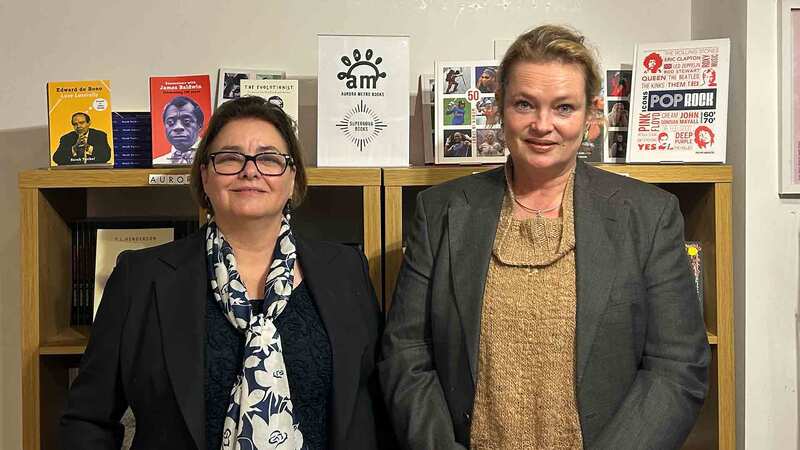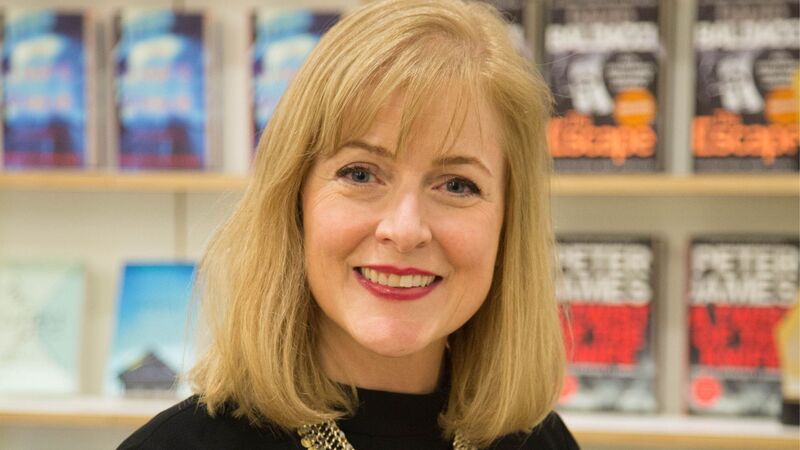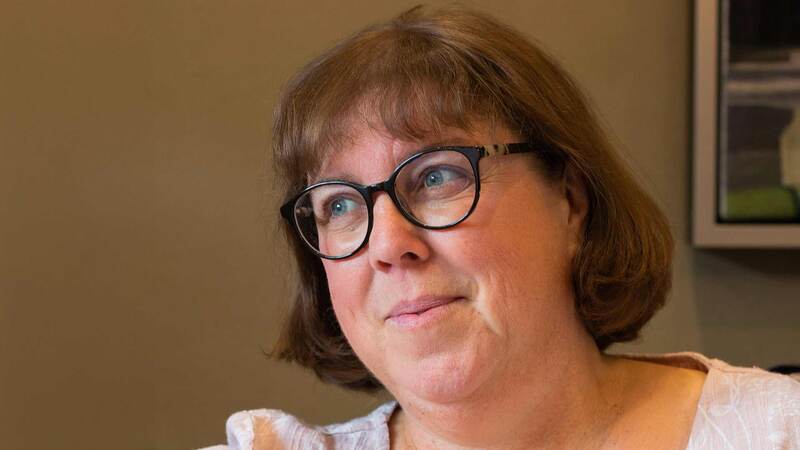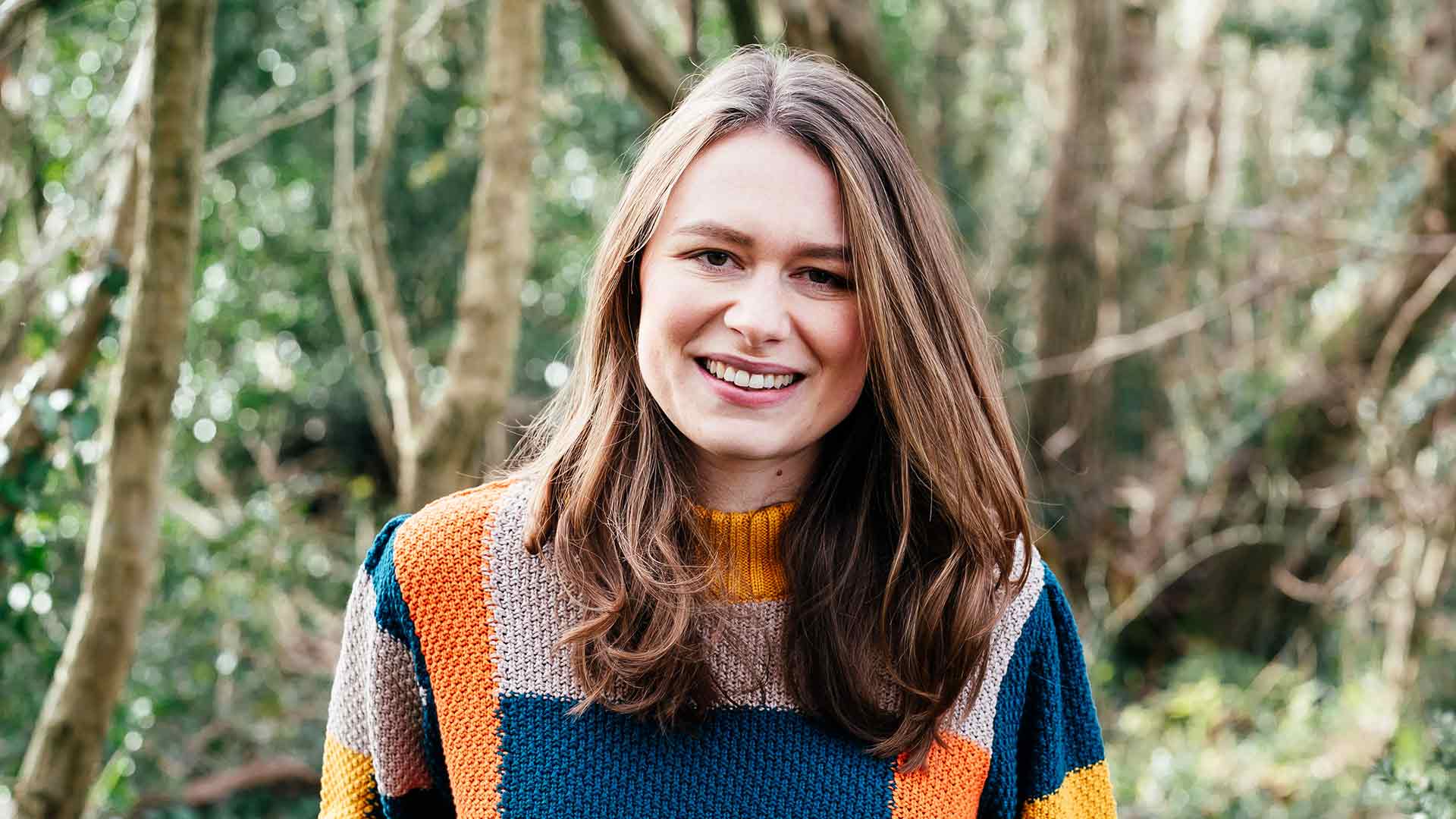You are viewing your 1 free article this month. Login to read more articles.
Richards reflects on the success of fiction studio Storymix, four years after launch
Jasmine Richards’ Storymix has become one of children’s publishing’s go-to consultancies for creating inclusive series since she unveiled it at the 2019 London Book Fair. She explains how the firm went from start-up to the mainstream.
It’s almost exactly four years since Jasmine Richards launched her inclusive children’s fiction studio, Storymix, at the London Book Fair. A couple of factors inspired her to set up the business, which creates original children’s series concepts centring inclusive characters, and commissions creators of colour to realise them, before pitching them to publishers. Firstly, following her second maternity leave stint, she decided to go freelance rather than return to her role leading Creative Kitchen, the IP department at OUP Children’s. After editing in the celebrity publishing space, she realised that her skill set, honed during five years generating and developing children’s fiction series for packager Working Partners, was “a rare and powerful thing”.
At the same time, her son was moving on from picture books to chapter books, and she found there was a lack of representative books in that area of the market. “We were looking at the shelves in a well-known bookshop chain and I could see Horrid Henry and Beast Quest for miles in that five-to-eight space,” she says. Having been the lead editor on the Beast Quest series while at Working Partners, she reflected on the fact that it had not occurred to her to suggest the protagonists could be children of colour. “I had a real ‘Sliding Doors’ moment because I thought, ‘If I had said that and we had gone that route, right now I’d be looking at this five-to-eight section and have a book that I could read to my son where he could see himself’. But I didn’t say it, so that didn’t exist.”
The 2018 publication of CLPE’s first Reflecting Realities report showed that only 1% of children’s books published in the UK in the previous year featured a main character of colour. “I was really horrified that I had been part of the industry that had allowed that to happen,” says Richards. “I thought, ‘There are lots of conversation, what are we actually going to do?’” Her solution was to set up a packager because, despite also being a children’s author, she felt it would be “the fastest way” to get inclusive children’s books taking up space on bookshelves.
Initially, Richards’ aspirations for the business were relatively modest. She regarded it as a solo project and admits: “I wasn’t really thinking of myself as a businessperson, just an editor.” After the LBF announcement came “a really fertile period in terms of creation” where she worked on story ideas and spoke to writers. She used her income from writing on the animated TV show “PJ Masks” for Disney to fund the company’s development work. Growth was “slow and steady” for the first couple of years, but it kicked up a gear when the pandemic hit.
Spinning plates
The shift to remote working meant that Richards—who had two young children and was living in rural Oxfordshire—could suddenly meet with several publishers a day to pitch projects, as well as reaching more writers. Another huge change around this time was the industry’s focus on representation and inclusivity, sparked by the murder of George Floyd and subsequent Black Lives Matter protests. Richards felt “very much in the spotlight” during this period, but realised there was “all of this opportunity”. She expands: “I had this material, just at the point where the thing that I did was exactly the thing that was needed. It’s really rare that that happens for a new business.”
Richards describes the archetypal Storymix project as “social impact wrapped in a really commercial wrapper”. The company’s approach to finding both writers and inspiration for stories is as diverse as its content. At the outset, Richards discovered authors through her creative writing teaching; however she met Joanna Brown (author of the Waterstones Children’s Book Prize-shortlisted Lizzie and Belle Mysteries) when the latter was hosting a session at a British Library event on how to teach Black British history. When it comes to content ideas, Richards extols the virtues of reading widely and says “you have to be open”. She describes how adventure series Future Hero, written by Remi Blackwood (the collective pen name for a team of up-and-coming writers, Chiemeka Nicely and Isaac Hamilton-McKenzie, led by Richards) and published by Scholastic, was sparked by a newspaper article about Black boys being disproportionately penalised for their haircuts. She expands: “That made me feel annoyed [and] got me thinking about barber shops and Black hair, then I had this idea about a magic barber shop... That’s how the ideas come to me.”
The way that Storymix works with publishers and writers also varies. For younger series fiction, the in-house team tends to plot titles in detail, but for books aimed at older children “we leave more room in the story for the writer and what they bring to the table”. Once the project has been sold to a publisher, the amount of editorial input Storymix has depends on what the project requires. “The fact that Storymix can provide editorial support for the publisher, as well as the writer, is a key part of the proposition,” Richards believes.
Last November, Storymix bolstered its team with two new hires—full-time senior editor Ashley Thorpe and a Creative Access intern, marketing and editorial assistant Jayna Matharu. Editorial assistant Irem Ozpullukcu joined earlier last year via the government’s Kickstart scheme. Richards says that “trying to work out how to take the business from a one-person band to a team” has been Storymix’s biggest challenge so far. She explains: “I want our team to reflect the values of what we do with our books and our writers. I want it to be a really inclusive, culturally diverse team and sometimes that means working with a younger generation, so there is time spent in terms of training.” This core team is supported by a host of freelance consultants, who Richards emphasises have been integral to Storymix scaling up. “Freelances are the backbone of children’s publishing, and I don’t think they get enough praise and attention.”
Going forward, Richards hopes this expansion will enable Storymix to diversify its offering. “We have done a lot of books that have centred Black children, and we will continue to do that,” she says. “As we grow the team, I want to intentionally explore different cultural heritages in what we produce, so that’s going to be a key focus for us.”
Storymix’s work is already branching out in other ways. It has just sold its first YA project, which was pre-empted in the US and the subject of a multi-publisher auction in the UK. The team will also be pitching other YA projects at London Book Fair and, at the other end of the market, they are currently talking to publishers about “a great picture book proposition”.
Community service
Alongside its books, Richards is also hoping to launch a Community Interest Company in the coming months to focus on delivering creative writing workshops for children and adults, which will kick off with a week-long trial at a school in London’s Tower Hamlets in May. Later in the year, she plans to meet with publishers in New York to try to “understand the US market better” now that Storymix has some projects published across the Atlantic.
In the future, Richards’ aims for Storymix include consistently working on projects that cater to children of all ages, from babies to teenagers. She says: “I would love to say that we have worked out how to do graphic novels as a packager [and] that we’re originating audio-first content.” She is also hopeful that Storymix characters will have “traversed into other mediums”, such as TV or film projects or merchandise.
In the shorter term, she will be heading to London Book Fair for two days of “back-to-back” meetings along with Thorpe. While there, they will mark Storymix’s fourth anniversary with a celebratory lunch and Richards will be talking on a panel. The whole team will also be attending The British Book Awards’ ceremony in recognition of Richards’ Editor of the Year shortlisting. Reflecting on the business’ successes to date, Richards says: “I think back to that Jasmine of four or five years ago and never in my wildest dreams did I think this would happen.”















